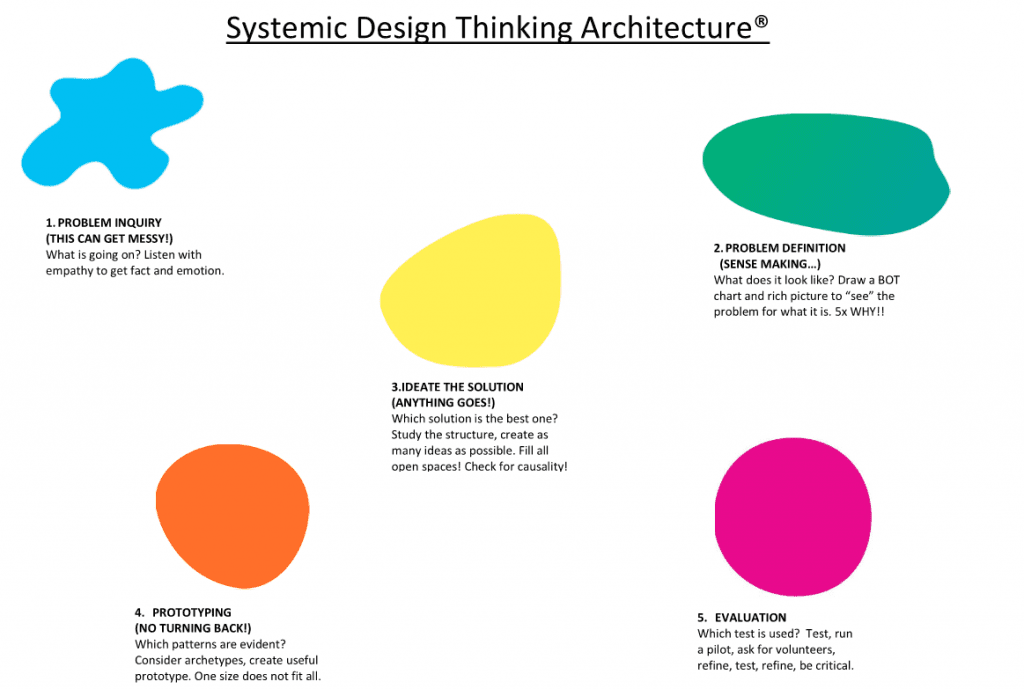Artificial Intelligence Requires Genuine People—Coach Them Correctly!
According to lexico.com, the definition of artificial intelligence (AI) is “The theory and development of computer systems able to perform tasks normally requiring human intelligence, such as visual perception, speech recognition, decision-making, and translation between languages.”
For this passage, I would like to place emphasis on the phrase “…tasks normally requiring human intelligence…” to illustrate my point of view on how coaching is an indispensable means of ensuring that people can work with artificial intelligence in a satisfied and sustainable manner. My contention is that AI can create uncertainty and a certain level of fear with people who are not familiar with all the detail.
I conducted my own qualitative research to explore new work-driven coaching methodologies. My context was job satisfaction, adaptability and efficiency, and I tried to find a way of optimizing the speed and comfort of adaption to change and the solving of complex problems. To ensure that I did not lose sight of the actual topic, coaching, I kept the ICF definition of coaching, “Partnering with clients in a thought-provoking and creative process that inspires them to maximize their personal and professional potential,” on hand all the time. My own background in systems thinking, as well as being in the C-suite as a human resources director for numerous years, greatly inspired me to synthesize existing knowledge and learnings into one streamlined solution.
Enter Systemic Design Thinking Architecture (SDTA)!
Coaches, trainers and leaders are often faced with a conundrum which I like to phrase as follows:
What if you solved the wrong (perceived) problem very well?
What if you solved the right (actual) problem very badly?
And, what if the captain (leader) of the Titanic responded to early warning information, applied his mind (while things were going exceptionally well, mind you!), averted a tragedy of epic proportions, and was able to tilt the iceberg and see what was going on?
The answer is not obvious, however; what would have been a grand idea would have been to:
- Tell the story (formulating the problem)
- Draw a behavior-over-time (BOT) graph
- Study the structure
- Identify the patterns
- Select the correct solution for the event
Or to apply a systemic thinking approach!
If the captain of the Titanic had furthermore used the following steps of design thinking, many ships like the Titanic would have been around for a long, long time—this would have given the captain the opportunity to champion long-term sustainability! (By, for example, using AI!)
- Empathize
- Define
- Ideate
- Prototype
- Test
When the two “thinkings” are combined into one synthesized whole (for ease of use, implementation and adoption) with a pragmatic framework, the following model appears.
This is what exactly what Systemic Design Thinking Architecture is®, a synthesized, useful framework of systemic and design thinking that can be used as an excellent structure to coach people who work in the World of Work 4.0 and who face uncertainty and a possible reduction in job satisfaction, when having to deal with AI related projects or challenges. In order to remain successful, companies must tilt the iceberg and see what is going on deep within their empire. Many leaders do not do this, and this lack of foresight has led to the demise of many successful organizations; these companies were not future fit!
Now that we have some background, the coaching methodology could be called situational coaching; one is after all coaching somebody through a series of situations. The Systemic Design Thinking Architecture (SDTA) is pictured below in a coaching friendly manner.

My approach is that the coaching journey is divided into the five steps shown below. I have used “blobs” of color to illustrate the coaching journey from a chaotic mess to a streamlined and uncluttered solution which eases the individual’s mind into the new experience.
In short, after coach/coachee matching and administrative matters have been concluded, the process consists of five easy steps:
- Step 1: Blue thinking, creative, express feelings, share facts, tell the story…coach
- Step 2: Green thinking, growth, life, draw a graph, ask Why…coach
- Step 3: Yellow thinking, high energy, leave no stone unturned, write a lot…coach
- Step 4: Orange thinking, the warmth of gaining momentum, identifying patterns…coach
- Step 5: Pink thinking, friendship, affection, harmony, success, now let’s try it…coach
In conclusion, the fundamentals of my thinking are that people:
- Do not think long and hard enough about things
- Hate uncertainty and have fears
- Enjoy the satisfaction of working through a clearly defined process (with lots of freedom within the steps), which leads to a feeling of achievement and success
I hope I have given the readers a peek inside my world of systemic coaching and efficient growth facilitation whereby I enable individuals and teams to develop and grow.
________________________________________________________________________________________________________________________________
Leon Steyn will be exploring this topic more in-depth at ICF Converge 2019, which is taking place October 23-26 in Prague, Czech Republic. Join his session “Artificial Intelligence Require Genuine People—Coach Them Correctly!” in the Discover content group on Thursday, October 24 at 5:30 p.m. (local time). By attending this session, you can earn 0.5 RD in Continuing Coach Education units.



Very Nice Blog
Very interesting post to discover aspect of artificial intelligence. Thanks for sharing.
Great article, nice information.
It is the AI that is transforming every industry. Thanks to AI developers as they are building blocks of this industry.
A very informative data to everyone. Salute to those AI developers who will do this in the future. Keep sharing!
Nice article! Thanks for sharing this informative post. Keep posting!
These tips are so much helpful for me. Thanks for sharing this great information. Your content is really amazing or we can say simply best. Amazing work. Please keep continue your good work and keep updated me about new posts. Thank you
AI is the one and trending Outsource for the individual. This is Great Articles. thank you so much